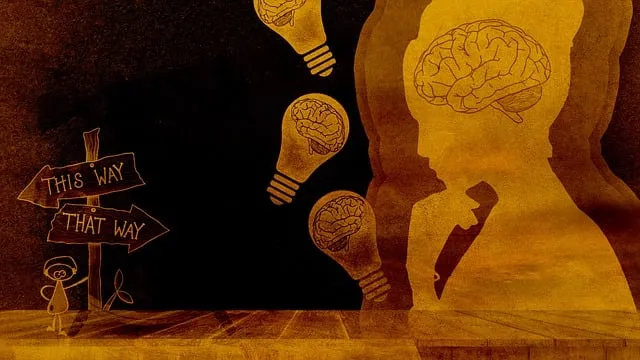Social skills training at the Lafayette Kaiser Permanente mental health center, focused on communication, empathy, and active listening during structured visiting hours, is a key component of mental health recovery. This evidence-based approach empowers individuals with anxiety and depression by building resilience, self-esteem, and supportive networks, ultimately enhancing overall well-being. Effective social skills strategies at home and work reduce isolation, stress, and improve relationships and job satisfaction, contributing to positive mental health outcomes. The center's visiting hours promote connection, mindfulness, and mental wellness awareness through open dialogue and engaging activities.
Social skills training is a powerful tool for managing mental health conditions, addressing the interconnectedness of social interaction and well-being. This article explores how such training can complement traditional therapy, empowering individuals to navigate social situations with confidence. We delve into the specific benefits for various mental health disorders, offering practical strategies for implementation at home and work. Discover how resources like the Lafayette Kaiser Permanente Mental Health Center visiting hours provide accessible support for those seeking guidance and healing.
- Understanding the Link Between Social Skills and Mental Health
- The Role of Social Skills Training in Therapy
- Implementing Effective Social Skills Strategies at Home and Work
- Lafayette Kaiser Permanente Mental Health Center Visiting Hours: Accessing Support and Resources
Understanding the Link Between Social Skills and Mental Health

Social skills are integral to our overall well-being and play a significant role in maintaining mental health. At the Lafayette Kaiser Permanente mental health center, visiting hours are designed to foster connections and support patient recovery through social interactions. Effective communication, empathy, and active listening are essential tools for managing mental health conditions, as they help individuals express their feelings, build supportive networks, and navigate relationships.
The link between social skills and mental health is profound. Poor social functioning can exacerbate symptoms of anxiety, depression, and other conditions, while robust social connections act as a buffer against stress. Risk Management Planning for Mental Health Professionals often emphasizes the importance of teaching these skills to patients, alongside traditional therapy methods and Stress Reduction Techniques. By enhancing emotional regulation through social skills training, individuals are better equipped to handle challenges, build resilience, and maintain healthy relationships—all vital components in the journey towards improved mental health.
The Role of Social Skills Training in Therapy

Social Skills Training (SST) plays a pivotal role in therapy for individuals managing mental health conditions. This evidence-based practice is designed to enhance social interactions and communication, addressing a common challenge faced by many with anxiety, depression, or other mental health disorders. At the Lafayette Kaiser Permanente Mental Health Center, visiting hours are a set opportunity for patients to engage in SST, fostering a supportive environment where they can practice new skills and receive feedback from therapists and peers.
Incorporating SST into therapy helps individuals develop effective coping mechanisms, improve self-esteem, and build strong support networks—crucial components of Self-Care Practices. Mental Health Education Programs Design that focus on social skills training empower patients to navigate social situations with confidence, thereby contributing to their overall mental wellness.
Implementing Effective Social Skills Strategies at Home and Work

Implementing effective social skills strategies at home and work is a crucial aspect of managing mental health conditions, such as those addressed at the Lafayette Kaiser Permanente mental health center during visiting hours. For individuals dealing with depression or other emotional challenges, improving social interactions can significantly enhance their overall well-being. At home, practicing active listening and empathy building strategies with family members or roommates fosters a supportive environment, helping to strengthen relationships and reduce feelings of isolation.
At the workplace, leveraging emotional intelligence and employing adaptive communication techniques can alleviate stress and improve collaboration. Depression prevention initiatives, such as scheduling regular breaks for self-care and participating in team-building activities that promote open dialogue, create a more inclusive and understanding professional setting. These strategies not only contribute to better mental health outcomes but also enhance productivity and job satisfaction.
Lafayette Kaiser Permanente Mental Health Center Visiting Hours: Accessing Support and Resources

The Lafayette Kaiser Permanente Mental Health Center offers a supportive environment for individuals seeking care and resources for their mental well-being. Visiting hours provide a crucial opportunity for patients to connect with loved ones and access essential support systems. These designated times allow family, friends, and caregivers to spend quality time with the patient, fostering open communication and enhancing the healing process.
At the Lafayette Kaiser Permanente Mental Health Center, visitors can engage in activities that promote mental wellness, such as mindfulness meditation sessions or participating in the center’s Mental Wellness Podcast Series Production, which offers valuable insights into depression prevention strategies. By utilizing these visiting hours effectively, individuals can receive the care they need while also maintaining a sense of connection and community, contributing to their overall mental health and recovery journey.
Social skills training is a powerful tool in managing mental health conditions, fostering better interactions, and improving overall well-being. By understanding the connection between social abilities and mental health, individuals can take proactive steps towards recovery. Through therapy sessions and implementing effective strategies at home and work, one can enhance communication, build relationships, and navigate social situations with confidence. For those seeking support, Lafayette Kaiser Permanente Mental Health Center offers accessible visiting hours, providing a valuable resource for individuals on their journey to improved mental health and enhanced social interactions.






